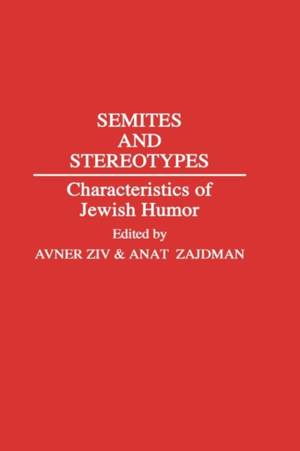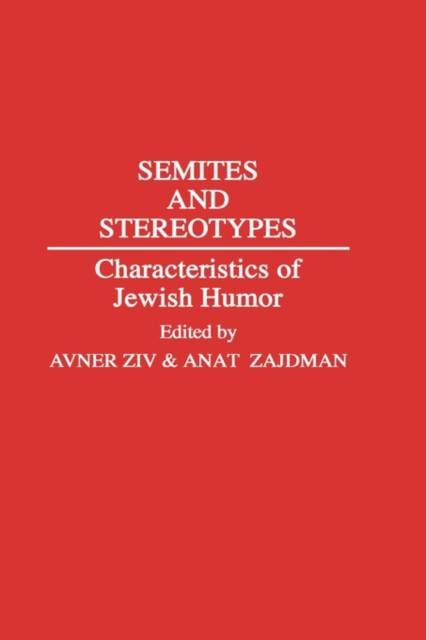
- Retrait gratuit dans votre magasin Club
- 7.000.000 titres dans notre catalogue
- Payer en toute sécurité
- Toujours un magasin près de chez vous
- Retrait gratuit dans votre magasin Club
- 7.000.0000 titres dans notre catalogue
- Payer en toute sécurité
- Toujours un magasin près de chez vous
Semites and Stereotypes
Characteristics of Jewish Humor
161,45 €
+ 322 points
Description
With an ongoing international conference, Jewish humor in recent years has been a subject of serious scholarly inquiry. Most academic publications, however, have been individual works representing a particular thesis or viewpoint, generally on literary aspects. The present collection of essays by scholars from England, France, the United States, Denmark, Israel, and Australia explores characteristics of Jewish humor from a variety of perspectives, including anthropology, literature, psychology, sociology, and religion.
Geographically, the work distinguishes between the Jewish humor of Israel and that of the diaspora; historically, it traces Jewish humor to the Bible. The linkages with Judaism and the Yiddish language are explored. Essays deal with the Jewish use of humor in stressful and tragic situations, with self-disparagement in Jewish humor, with anti-semitism and stereotyping, and with Jewish women as the objects of humor. The contributions to world culture of humorists Sholom Aleichem, Woody Allen, Philip Roth, Charlie Chaplin, and numerous contemporary performers are discussed as are the Jewish theorists of humor, including Sigmund Freud, Henri Bergson, and Arthur Koestler. An interdisciplinary book, it will be of interest to students and researchers of Jewish tradition and folklore, Jewish-American literature, American studies, and humor, popular culture, anthropology, psychology, and sociology.Spécifications
Parties prenantes
- Editeur:
Contenu
- Nombre de pages :
- 224
- Langue:
- Anglais
- Collection :
- Tome:
- n° 31
Caractéristiques
- EAN:
- 9780313261350
- Date de parution :
- 28-04-93
- Format:
- Livre relié
- Format numérique:
- Genaaid
- Dimensions :
- 163 mm x 243 mm
- Poids :
- 1038 g

Les avis
Nous publions uniquement les avis qui respectent les conditions requises. Consultez nos conditions pour les avis.





